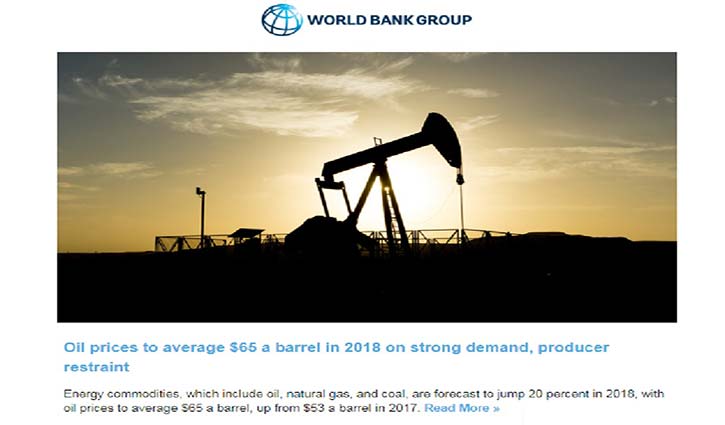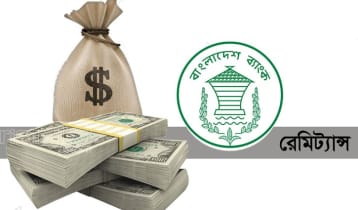Prices of oil, gas, commodities likely to be hiked
2 || risingbd.com

Desk Report: Oil prices are expected to average $65 a barrel this year, up from the $53 per barrel average of 2017, driven by strong consumer demand and OPEC’s continued cuts, the World Bank said in its April Commodity Markets Outlook.
The World Bank now expects prices of energy commodities-- crude oil, natural gas, and coal-- to jump as much as 20 percent in 2018, which is a 16-percentage point upward revision from the bank’s previous commodity market outlook from October last year.
“Accelerating global growth and rising demand are important factors behind broad-based price increases for most commodities and the forecast of higher commodities prices ahead,” said Shantayanan Devarajan, World Bank Senior Director for Development Economics and acting Chief Economist. “At the same time, policy actions currently under discussion add uncertainty to the outlook,” Devarajan noted.
“Strong oil demand and greater compliance by the OPEC and non-OPEC producers with their agreed output pledges helped tip the market into deficit,” said John Baffes, Senior Economist and lead author of the Commodity Markets Outlook.
Next year, the World Bank sees oil prices averaging $65 as well.
Early on Wednesday, as the market was awaiting the weekly EIA inventory report, Brent Crude was around $73 a barrel and WTI Crude hovered around $68 per barrel, after Brent briefly broke above $75 early on Tuesday as geopolitical concerns were the prevailing market sentiment.
“Although prices are projected to decline from April 2018 levels, they should be supported by continued production restraint by OPEC and non-OPEC producers and strong demand,” the World Bank said in its commodity outlook.
Oil prices could see upward pressure in the coming weeks and months in case of constraints to U.S. shale production, geopolitical tensions in several producing nations, and the U.S. possibly not waiving the sanctions on Iran, according to the World Bank—a view shared by many analysts and investment banks.
In terms of downside risks to oil prices, the World Bank’s picks are potential weakening in compliance in the OPEC/non-OPEC production cuts or “outright termination of the accord”, growing oil production from Libya and Nigeria, and faster-than-anticipated U.S. shale production.
Source: oilprice.com
risingbd/May 01, 2018/A K Azad
risingbd.com




















